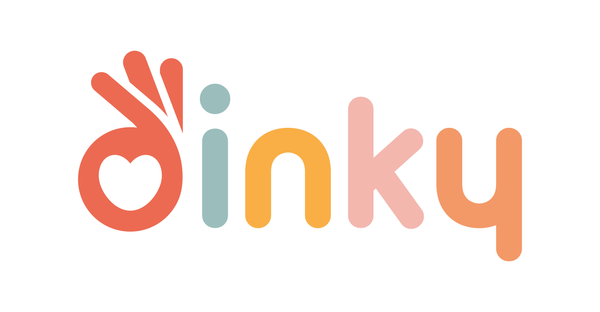6183234175155,
7111782400179,
7756559909043,
7883577884851,
7936805142707,
8121408749747,
8123262173363,
8009085747379,
8189801365683,
8174166966451,
8114656673971,
6855658602675,
6856124956851,
6857724231859,
6857770565811,
6869953642675,
7214313734323,
7756559909043,
7883577884851,
7702845587635,
7734635233459,
7726520533171,
7241735078067,
7102146937011,
7756559909043,
7152040509619,
7190746628275,
7178413834419,
7204963287219,
7232907018419,
6783407423667,
6783417286835,
6783404409011,
7880714944691,
8114657722547,
6183094649011,
6182977994931,
6182991855795,
6183234175155,
7111782400179,
6182999556275,
6183135903923,
7421862478003,
6183107297459,
6796050202803,
7756559909043,
8123262173363,
7457814675635,
7578951090355,
7455387287731,
7572871381171,
7374808154291,
6981300814003,
7503018852531,
7936805142707,
8049079156915,
8044101566643,
8044082757811,
8179757842611,
8173077758131,
8172465848499,
8156705849523,
8141744013491,
8049088299187,
8049095606451,
8049102880947,
8049121067187,
6183441236147,
7457814675635,
7208633827507,
7232907018419,
8091062894771,
7646078992563,
7492103864499,
6707703644339,
6183248560307,
7499902091443,
7546790281395,
7475014434995,
8026831061171,
7702845587635,
6182774538419,
6183094649011,
6182977994931,
6707703644339,
6183248560307,
7578951090355,
7105399521459,
6182774538419,
7457814675635,
6183307051187,
7314564677811,
7238277562547,
7015038582963,
7238281265331,
7152040509619,
7101736976563,
8091062894771,
7578947354803,
7546809221299,
6183094649011,
6182977994931,
6182991855795,
6183234175155,
7111782400179,
6182999556275,
6183135903923,
7421862478003,
6183107297459,
8123262173363,
8196850712755,
7374808154291,
8059071365299,
7977089040563,
7208633827507,
7492103864499,
8137413066931,
8134584271027,
8092638052531,
8047475228851,
8153870139571,
8152351441075,
8153885769907,
8048783622323,
8151326654643,
8091059388595,
8035746414771,
8186964377779,
8051311640755,
8048783622323,
8047475228851,
8091059388595,
8051311640755,
8152351441075,
8134584271027,
8137413066931,
8092638052531,
8151326654643,
8035746414771,
8186964377779,
8153870139571,
8177823776947,
7100197798067,
6932814758067,
7100326052019,
7100361572531,
7100337914035,
7100209299635,
7100214345907,
7100188721331,
7493436735667,
8166894436531,
8166894239923,
7100157100211,
8185991758003,
6183441236147,
7457814675635,
7572871381171,
8091062894771,
7578947354803,
7374808154291,
7578951090355,
7100053913779,
7933311549619,
7499902091443,
7475014434995,
8026831061171,
7883577884851,
7702845587635,
8034421407923,
8049079156915,
8044101566643,
8049685102771,
7499694801075,
8139572215987,
8049662754995,
8044082757811,
8049088299187,
8049095606451,
8141744013491,
8049121067187,
7100053913779,
7233446838451,
6795917689011,
7238277562547,
8176920199347,
6183094649011,
6182977994931,
6182991855795,
6183234175155,
7111782400179,
6182999556275,
6183135903923,
7421862478003,
6183107297459,
7233446838451,
6796050202803,
6795917689011,
7105399521459,
6183307051187,
7102146937011,
7241735078067,
7017411641523,
7546790281395,
7238277562547,
7015038582963,
7238281265331,
7152040509619,
7101736976563,
8121408749747,
8139572215987,
8123262173363,
8177823776947,
8048783622323,
8134584271027,
8137413066931,
8153870139571,
7578951090355,
6183307051187,
7102146937011,
6981300814003,
7017411641523,
7015038582963,
7238281265331,
7101736976563,
7476737245363,
7374808154291,
6182774538419,
6183248560307,
6182806978739,
6183528235187,
7578951090355,
7100053913779,
7233446838451,
6795917689011,
6855658602675,
6856124956851,
6857724231859,
6857770565811,
6869953642675,
7214313734323,
7314564677811,
7238277562547,
7702845587635,
7734635233459,
7726520533171,
7977097035955,
8139572215987,
8090977501363,
7374808154291,
7100197798067,
6932814758067,
7100326052019,
7100361572531,
7100209299635,
7100337914035,
7100214345907,
7100188721331,
7493436735667,
8166894436531,
8166894239923,
7100157100211,
7933311549619,
8177823776947,
6855658602675,
6856124956851,
6857724231859,
6857770565811,
6869953642675,
7214313734323,
7314564677811,
7476737245363,
7702845587635,
7734635233459,
7726520533171,
6183441236147,
6707703644339,
7190746628275,
6783407423667,
7455387287731,
6783417286835,
7178413834419,
6783404409011,
7204963287219,
7013597970611,
7572871381171,
7208633827507,
7232907018419,
7546809221299,
7578947354803,
7492103864499,
8134584271027,
7316180795571,
7544289493171,
7543994810547,
7977097035955,
8090977501363,
6707703644339,
7474743738547,
8054081224883,
7316180795571,
7503018852531,
7543994810547,
7544289493171,
7100053913779,
8044082757811,
7499902091443,
8049662754995,
8049121067187,
8141744013491,
8192066945203,
7578951090355,
7475014434995,
8026831061171,
7933311549619,
8044101566643,
7499694801075,
8049079156915,
8191999180979,
8049095606451,
8139572215987,
8049685102771,
8034421407923,
8049088299187,
6182774538419,
6183248560307,
6182806978739,
6183528235187,
7933311549619,
8115751977139,


